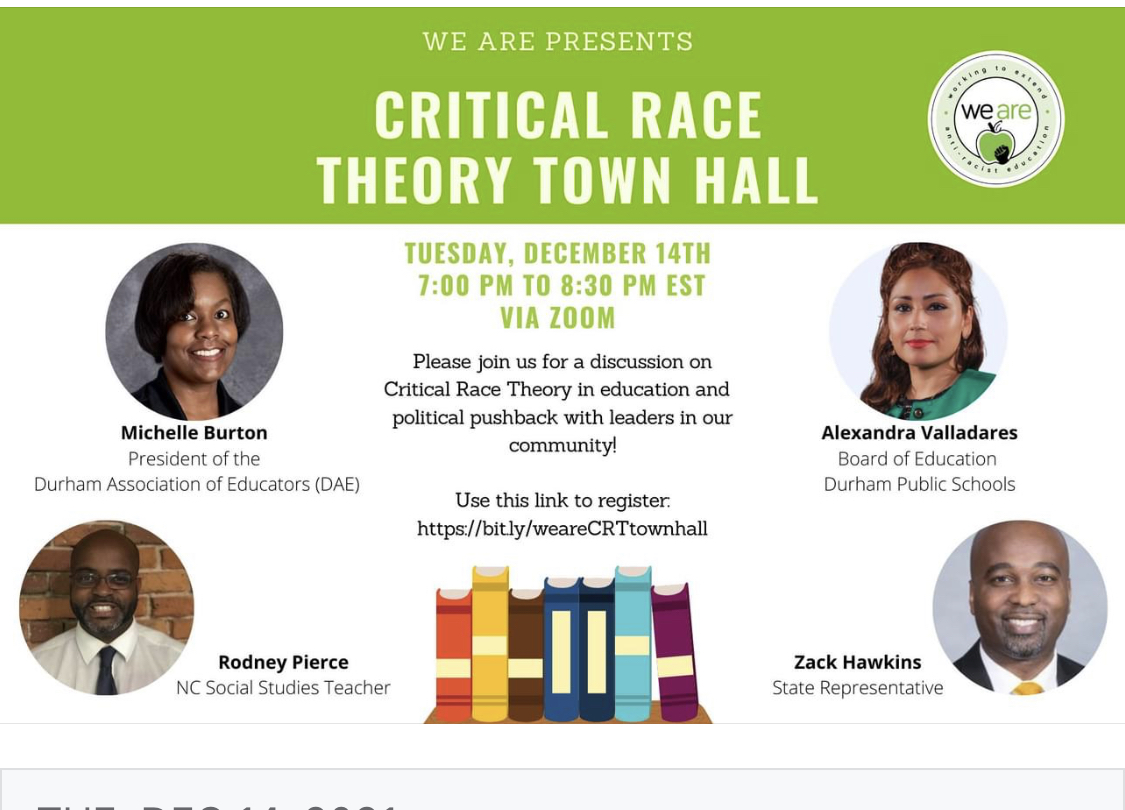Lisa Luten, senior director of communications at the Wake County Public School System (WCPSS), stated in November 2021 that Critical Race Theory (CRT) is not a topic taught to students but is rather an academic theory used by adults to discuss racial contexts in their environment. However, despite this assertion, the WCPSS had already delved deep into its “Reimagining Equity and Access Project,” a collection of training curriculum with CRT at its core.
In the hallowed halls of academia, CRT thrives as a theoretical discourse. Yet, as its tendrils reach into our children’s schools, the debate intensifies. Those like Lisa Luten deny its presence in classrooms, yet parents can see with their own eyes programs like the “Reimagining Equity and Access Project,” which embed Critical Race Theory.
One such training module within the project, called “Unpacking Whiteness,” is rooted in the controversial CRT and Implicit Bias theories associated with Robin DiAngelo, who is the author of “White Fragility: Why It’s So Hard for White People to Talk About Racism” and a key figure in the current CRT movement.
Parental concerns regarding CRT practices in K-12 schools gained traction during the 2020-2021 school closures. As parents actively participated at historic levels at school board meetings and monitored Zoom classrooms at home, North Carolina legislators responded by introducing bills in 2021 and 2023, such as “Ensuring Dignity and Nondiscrimination in Schools” and “Equality in Education.” These were aimed at ensuring all students are treated equally in regards to race, including majority students. However, these bills faced criticism from progressives who labeled them “dangerous” and “insulting,” with Gov. Cooper dismissing parental concerns as “conspiracy-laden politics.”
A month after Cooper vetoed the first of these bills, We Are, an “anti-racist” nonprofit, organized a Critical Race Theory Town Hall hosted by Durham Democrat politicians and activists associated with the NC Association of Educators (NCAE). The invitation encouraged participation in a discussion on CRT with community leaders.
Leading the Dec. 21 town hall was Ronda Bullock Taylor, the lead curator (executive director) of We Are. According to her We Are biography, Mrs. Bullock Taylor is considered an expert on whiteness and the racial identity construction of white children. This event, organized by a CRT-centric organization, took place amid the ongoing assertion that CRT was not being implemented in K-12 schools.

Moving into the spring of 2022, K-12 public school enrollments remained below pre school-closure levels, and proficiency rates in reading and math were alarming. Students grappled with significant learning losses, and teachers faced challenges in instructing students who were significantly behind. Meanwhile, the WCPSS Board of Education shifted its focus to “equity.”
The board approved a grant from We Are, emphasizing that its purpose was not to promote CRT but to disrupt racial disparities. The Office of Equity expanded, with administrators in the office earning salaries that teachers and bus drivers could only dream of. In November 2022, the WCPSS Board of Education reviewed the district strategic plan, voting to include equity and the “equity lens” as major focal points.
Engaged in ongoing exploration, members and administrators of the WCPSS Board of Education are actively immersing themselves in ideological themes associated with Critical Race Theory (CRT). Notably, in November, six Board members allocated $3,000 each, for a two-hour program featuring instruction by Ronda Taylor Bullock of We Are, delving into discussions on white discomfort and participating in the creation of artwork.
The potential consequences of adopting this academic theory as a guiding principle in our students’ educational upbringing are underscored by Christopher Rufo, a prominent figure in opposition to Diversity, Equity, and Inclusion (DEI) and Critical Race Theory.
As expressed in an article published by the NY Post, Rufo cautions, “If American institutions succumb to this ideology, they can expect a brutal future: the suspension of individualism in favor of racial collectivism; a nihilistic, zero-sum vision of society; and endemic racial conflict as a baseline condition.”
These cautionary words prompt a critical examination of the profound implications associated with such an ideological shift in the educational landscape.